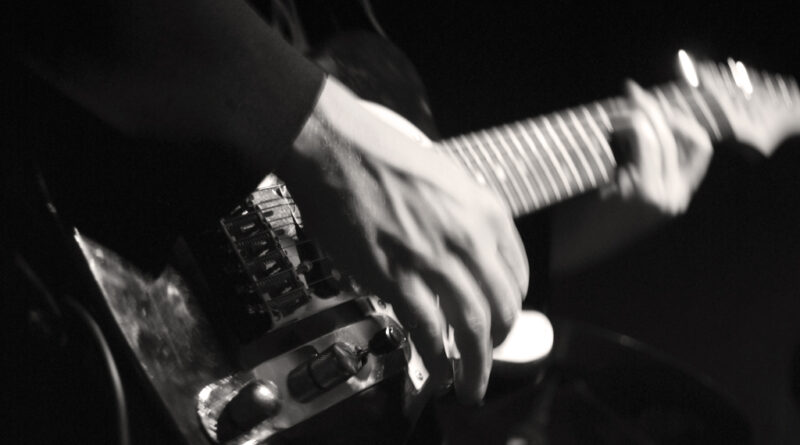Guitarist Caleb Quaye, well-known for his work with Elton John — as well as other pop and rock legends like Mick Jagger, Paul McCartney, and Hall & Oates — reflected on how things have changed in the music industry and pointed out some of the things that modern musicians may not understand. Speaking to Jon Blackstone in an interview, Quaye recalled working at the legendary Trident Studios, explaining how the process was really different back then compared to today.
When the interviewer recalled how “gorgeous” some of the stuff sounds on these old recordings from the Trident Studios, Caleb responded by offering (transcribed by Killer Guitar Rigs):
“Well, the engineers back then at Trident… Particularly, there was a great engineer, Robin Cable. He was something else. He was great. Engineers back in those days, in my opinion, the secret was knowing the room.”
To Caleb, “knowing the room” was the essential part of the equation. An engineer’s task was to use the best possible potential of the room that they were recording in. And, of course, it wasn’t the easiest task since there are no two identical rooms out there. Caleb continued:
“They knew the room. They knew what instrument sounded best in what part of the room.”
The next obvious step is to know how to fit this within the context of the instruments and the piece that is being recorded. At this point, there are many variables in this equation but the engineers in the Trident Studios knew what to do. As he added:
“So it was all to do with context, whatever the song demanded, whatever kind of sound, whatever kind of concept the producer had for what he saw as the finished thing. They knew how to accommodate that according to the room. They knew the room.”
As Caleb also recalls, legendary session drummer Bernard Purdie had his drums nailed to the floor where the supposed perfect spot was for the drum sound:
“I’ve always loved this story — it’s a famous story of Atlantic Studios in New York. Bernard Purdie was the house drummer. They had his drums nailed to the floor. The engineer said, ‘This is where the drum sound is.’ And anybody that came in there wanting to use those drums, under threat of death, they could not move those drums. [Laughs]”
And the rule also applied to other instruments, although they were much easier to move around:
“‘This is where the bass sounds right. This is where the guitar sounds right.’ They knew the room, you know, and it worked. You know?”
When the interviewer said that “it seems like that’s kind of a lost art now,” Caleb replied:
“I mean, yeah, digitally, you sample, it’s not about the room. It’s really what button you push. [Laughs]”
Going more into it, Caleb went on to explain how modern musicians these days don’t know a lot about jamming and playing with a tight band that could naturally come up with great stuff right there on the spot:
“It’s all a production now, so they’re just all playing their parts, and that’s it. They don’t really know where to go from there.”
One of the things that they touched upon is also the issue of using click tracks. Although obviously not a bad thing, if you end up sticking too closely to it, you might lose some of the natural organic feel that we love in music. When the interviewer reminded him of how The Beatles producer was once asked whether the legendary Liverpool band had a click track, responding that they didn’t need that since they had Ringo Starr, Caleb then added:
“Well, I think it came in tandem with the advancement of technology, and in that advancement of technology, there was this idea of, ‘Oh, we can make it perfect now.’ Meaning linear, perfect.”
In fact, Caleb feels like it’s, in a way, an “anti-musical” practice:
“Everything can line up. Perfect. Which… I get that, but it’s really anti-musical because music reflects humanity.”
“So for instance, we’re having a conversation, and a conversation has ebb and flow to it. That’s how it is with music — I mean, real music is going to have ebb and flow. It’s not going to be restricted and put in this linear kind of symmetrical box because once you do that, then feeling is gone.”
“It’s like that’s not life, and the jazz musicians understood that. So when you go back, try giving a click track to Elvin Jones! [Laughs]”
“So it’s all about articulating the dynamics of life, humanity, and music regardless of the style or genre of the music. I used to give guitar lessons and stuff and do some teaching, and students would always say to me, ‘Why is it that the music that you guys made back in the ’70s still sounds better? It still sounds so great!'”
“They’d say things like this, and I’d sit down, listen, and I’d go, ‘Well, maybe it’s because we were all in the same room playing together, and listening to each other.'”
Photo: Cyberuly (An electric guitarist)


